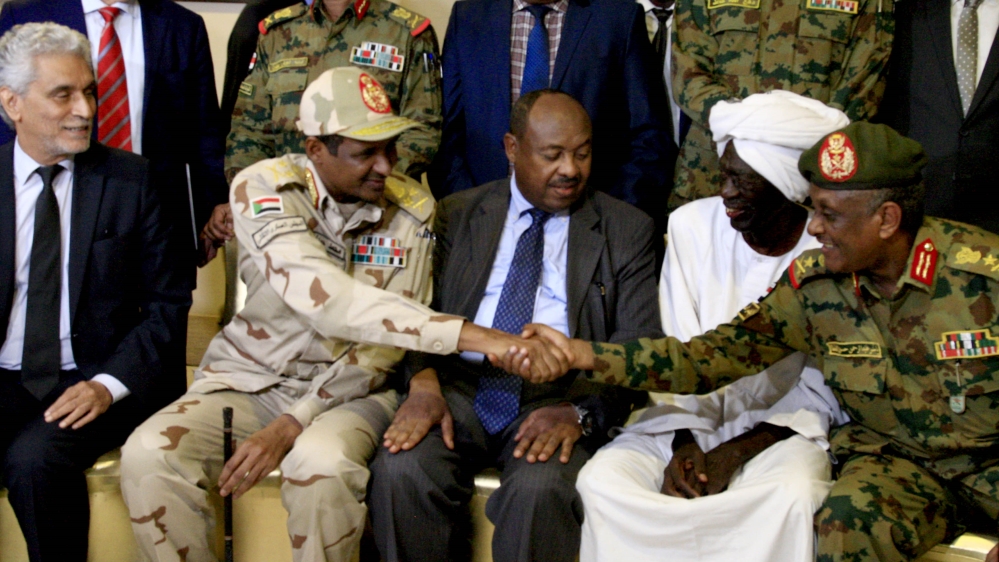KHARTOUM (Reuters) - Sudan’s ruling military council and a coalition of opposition and protest groups have agreed to share power for three years and then hold elections, in a deal that brought thousands of people onto the streets to celebrate.
The deal has revived hopes for a peaceful transition of power in a nation plagued by internal conflicts and a deepening economic crisis in the wake of nearly three decades of rule by Omar al-Bashir, who was ousted in April.
Relations between the military council that took over from Bashir and protest groups broke down when security forces killed dozens of people holding a sit-in on June 3. But African mediators brokered a return to direct talks following huge protests against the military on Sunday.
After a second straight day of discussions, the two sides agreed in the early hours of Friday to “establish a sovereign council by rotation between the military and civilians for a period of three years or slightly more,” African Union mediator Mohamed Hassan Lebatt told reporters.
The first 21 months will be led by the military and the final 18 months by civilians, according to a statement from the Sudanese Professionals Association (SPA), which has spearheaded the protests.
It said the sovereign council would include five military figures and five civilians, with an additional civilian member agreed by the two sides, and that the deal would be finalised by Monday.
The deal also includes the formation of an independent technocratic government and a transparent, independent investigation into violent events in recent weeks.
The sides agreed to postpone the establishment of a legislative council. They had previously said the Forces for Freedom and Change (FFC) coalition would take two-thirds of a legislative council’s seats, before security forces crushed the sit-in outside Khartoum’s Defence Ministry on June 3.
Sudanese analyst Khalid al-Tijani said both sides had made concessions in the deal. “The biggest challenge is to provide trust between the parties to implement the agreement,” he said, adding that the government would face high expectations and major economic challenges.
Celebrations after military council, Opp agreement
The streets of Omdurman, Khartoum’s twin city across the Nile River, erupted in celebration when the news broke, a Reuters witness said. Thousands of people of all ages took to the streets, chanting “Civilian! Civilian! Civilian!”
Young men banged drums, people honked their car horns, and women carrying Sudanese flags ululated in jubilation.
However, some were slow to learn of the deal because of an internet cut ordered by the military last month.
“This agreement opens the way for the formation of the institutions of the transitional authority, and we hope that this is the beginning of a new era,” said Omar al-Degair, a leader of the FFC.
The celebrations continued in Khartoum and Omdurman on Friday morning.
“We have won a victory against injustice,” said Shihab Salah, a 23-year-old unemployed engineering graduate carrying a national flag. “Our goal is to achieve freedom and justice and find jobs for young people. Civilian rule and democracy are the future of Sudan.”
Bashir was ousted after 16 weeks of protests triggered by a deepening economic crisis that remains unresolved.








